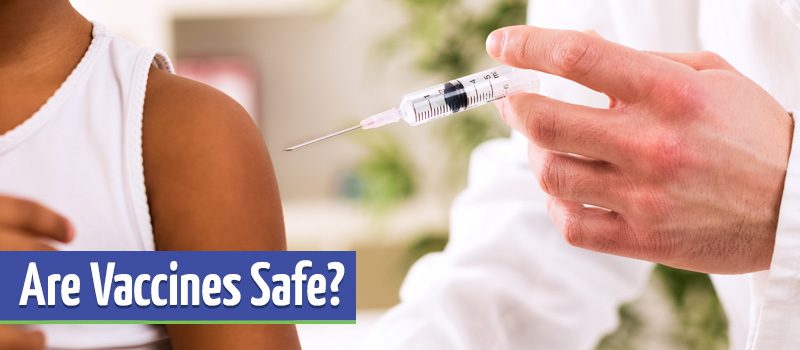 With all the media coverage and misinformation floating around on social media, it’s not unusual to question vaccines’ role in your child’s health. It’s normal to want to seek out information to answer that parenting question of “are vaccines safe?” but it’s important that you get info from legitimate medical sources, not graphics shared on social media.
With all the media coverage and misinformation floating around on social media, it’s not unusual to question vaccines’ role in your child’s health. It’s normal to want to seek out information to answer that parenting question of “are vaccines safe?” but it’s important that you get info from legitimate medical sources, not graphics shared on social media.
On a weekly basis, parents ask us if vaccines are safe. We answer unequivocally yes. While every medicine carries a risk of adverse reactions, vaccines are the most affordable and effective ways to prevent your child from contracting illnesses, many of which may be life-changing if not contracted. Thanks to vaccinations, we effectively eliminate polio, smallpox and diphtheria, and are close to eradicating measles, rubella and NiB. None of these gains would have been possible without vaccinations.
In 2014 alone, vaccinations prevented 8,500 child hospitalizations, according to the Colorado Children’s Immunization Coalition, and save the lives of millions of children worldwide.
Each vaccine on the schedule is continually monitored for safety by the Food and Drug Administration, and pediatricians agree that the preventative benefits of each vaccine on the schedule far outpaces the risk of secondary effects. Furthermore, any link between vaccines and autism has been debunked for years from a variety of researchers. A comprehensive 2013 study by the Institute of Medicine concluded there was no evidence of major safety issues with the recommended vaccination schedule.
You can’t rely on others’ vaccinated immunity to protect your children, as a 2014-2015 measles outbreak in Disneyland illustrates, where 125 were struck with the illness, and researchers point to dipping vaccination rates as a cause of the outbreak.
It’s hard to know what sources to believe, so if you have any questions about vaccinations, alternative health plans or pediatrics in general, consult your child’s doctor. Everyone at The Youth Clinic is dedicated to helping our families receive the most accurate information on childhood health available.
